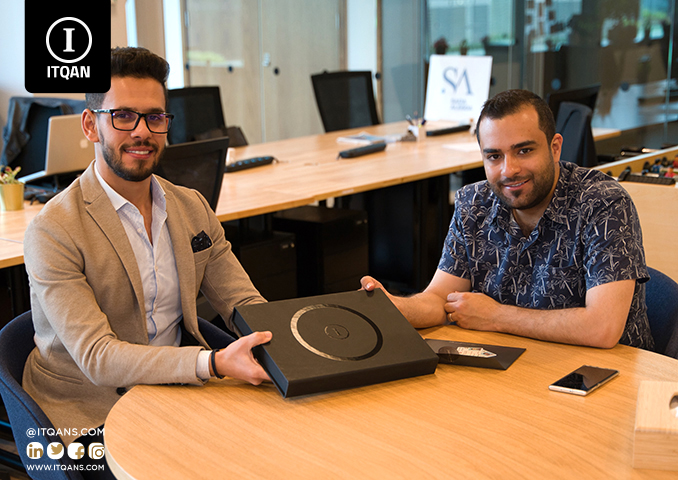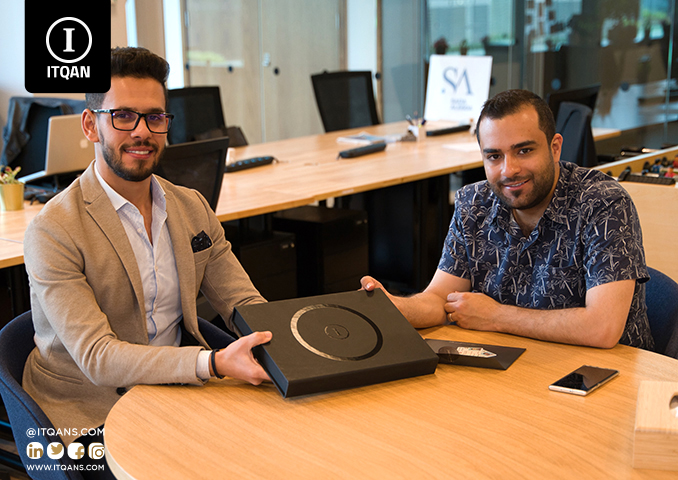An investor wants to establish a company in the Abu Dhabi Airports Free Zone. The advantages that can be benefited from in the Abu Dhabi Airports Free Zone include full tax exemptions on income and international taxes, in addition to easy access to the regional and international market and integration with the advanced global transportation network located at the airports. This contributes significantly to economic growth and sustainable development for companies investing in this dynamic environment. In this article, we will explore in more detail the benefits of establishing companies in Abu Dhabi Airports Free Zone , as well as the steps needed to successfully establish a company in this fruitful context.

جدول المحتوى
ToggleEstablishing a company in the Abu Dhabi Airports Free Zone
The procedures for establishing companies within the free zones in Abu Dhabi are simplified and require less time and effort, as the main goal of establishing these zones is to attract and facilitate the investment process, and remove obstacles and bureaucratic barriers. In each free zone, there is an independent authority responsible for issuing operating licenses and helping companies establish business there.
Investors can register their projects in the form of a company or free zone institution, or establish a branch or representative office of an existing company or parent company, whether local or foreign. Free zone institutions and companies are considered limited liability companies and are subject to the laws and regulations in force in the free zone in which they were established.
Abu Dhabi airports free zones
The Abu Dhabi government provides great support to companies that open projects within free zones, and provides many incentives, such as the freedom of full foreign ownership of companies without the need for a local partner, a low-cost operating environment, the freedom to transfer capital and profits in full, and exemption from import and export taxes and taxes. Personal income and corporate taxes. In addition, free zones provide a single window service that helps companies quickly obtain the necessary permits and licenses from the relevant authorities, in addition to providing skilled labor and suitable housing for them.
Entering goods into free zones
Duty-free zones and markets in the country allow the entry of various types of foreign goods from many countries, and their removal outside the country or to other duty-free zones and markets, without being subject to taxes and customs duties. Foreign goods re-exported in the country may also be brought into duty-free zones and markets abroad, provided that they are subject to export restrictions and customs procedures followed in the case of re-export.
Abu Dhabi Global Market
The Abu Dhabi Global Market forms a pivotal part of Abu Dhabi’s economic vision, and plays an important role in consolidating Abu Dhabi’s position as a leading center for finance and business at the international level, and is linked to the growing economies in the Middle East, Africa, South Asia and other regions of the world.
The market was established pursuant to Federal Law No. (8) of 2004, Federal Decree No. (15) of 2013, Cabinet Resolution No. (4) of 2013, and Law No. (4) of 2013, and the Abu Dhabi Global Market, the international financial center located in Abu Dhabi, began. The capital of the United Arab Emirates, it officially began its duties on October 21, 2015.
The Abu Dhabi Global Market consists of three independent authorities, including: the Registration Authority, the Financial Services Regulatory Authority, and the Abu Dhabi Global Market Courts. The strategy of the market, located in a city that includes one of the largest sovereign funds in the world and one of the largest gatherings of individuals and institutions with high financial value, is based on activity. In key areas that rely on Abu Dhabi’s strengths, including private banking, wealth management, and financial innovation.
The Abu Dhabi Global Market allows companies registered in it to carry out their activities within a work environment that enjoys world-class regulatory frameworks, an independent court system and a legislative infrastructure.
Target sectors
The Abu Dhabi Airports Free Zone is being established to create a unique and preferred commercial destination for international and local institutions in the following sectors:
• Aviation
• Aerospace
• Defense
• Airport services
• Logistics
• Cargo
• Shipping
• Information and communications technology
• Pharmacy
• Management consulting
• Trade
• Light industries
• Marketing and events
• Other service providers that are related to the aviation industry in one way or another, as well as some industrial activities, Which seeks to obtain the advantage of close proximity to the airport for import and export purposes.
Advantages of Abu Dhabi Airports Free Zone
Abu Dhabi Airports Free Zone offers a variety of advantages that make it an ideal destination for international companies and investors. Here are some of these advantages:
- Tax exemptions: The free zone allows complete exemptions from taxes on income for up to 50 years, which means no local or international taxes on profits generated within the zone.
- Customs facilities: Abu Dhabi Airports Free Zone provides advanced customs facilities, allowing import and export without customs duties or quantity restrictions on goods.
- Strategic location: The free zone is located in the heart of the Middle East, which facilitates access to a large market that extends to all parts of the world.
- Advanced infrastructure: The free zone provides an advanced infrastructure that includes modern transportation, communications and logistics facilities, which contributes to accelerating shipping and distribution operations.
- Flexible laws and regulations: The region is characterized by a flexible legislative and regulatory environment, which facilitates conducting business and reduces complex bureaucracy.
- Dedicated government support: The Abu Dhabi government provides strong support to companies by accompanying investments and providing necessary logistical and administrative services.
- Flexibility in establishment and operation: Investors in the region have great freedom in choosing corporate legal structures and overall corporate management, allowing business strategies to be implemented more effectively.
In short, Abu Dhabi Airports Free Zone embodies a modern concept of international business, as it provides a fruitful investment environment and unique facilities that attract companies to take advantage of the economic growth opportunities available in the region and across international borders.
How can you establish a company in the free zone?
Establishing companies in the free zones in Dubai is much easier than establishing a company inside Dubai, as it can be 100% owned by any nationality, and the presence of a partner or sponsor who is a citizen of the UAE is not required, as the company is registered as a free zone establishment or it is a company belonging to The free zone or a branch or representative office in the free zone in Dubai. In this case, it is possible for the main company to be outside the Emirates, and it is not required to be inside the Emirates. The companies located within the free zone are regulated through the authority responsible for the free zone, which is the one that issues any licenses to the company. This depends on the location of the free zone and the activity it carries out. The type of license issued by the responsible authority varies according to the commercial activity. A company can be established in the free zone by following some steps, including:
- Choose the company’s location
- Agreeing on the trade name, as it is the name that distinguishes one company from another.
- Obtaining the company’s business license.
- Obtaining initial approval to start work.
- Commercial license registration.
- Complete the requirements for a commercial license and obtain it.
Establishing a company in the free zone
The UAE is distinguished by the fact that it has more than 40 free zones in addition to some areas that are being established. Therefore, establishing a company in a free zone is one of the difficult matters facing the investor, as it is difficult to choose between many areas. Therefore, Kaber Company, through its great experience in business management, undertakes By helping many investors choose the appropriate free zone for their commercial activity, it also helps in establishing and establishing a company in the free zone in the shortest time and at the lowest costs.
At the conclusion of this article, establishing a company in the Abu Dhabi Airports Free Zone appears as a smart and successful strategic step for any investor seeking growth and expansion in the Middle East region. The region’s unique advantages, such as full tax exemptions, advanced customs facilities, and advanced infrastructure, provide unparalleled opportunities to build a successful and sustainable business.
Frequently asked questions about establishing a company in the free zone
Are there special requirements for foreign investors to establish companies in the Abu Dhabi Airports Free Zone?
Foreign investors must appoint a local agent to represent them before the competent authorities in the free zone.
What additional services does Abu Dhabi Airports Free Zone provide to companies?
- Support for financial and accounting services.
- Facilities for logistics management and warehousing.
- Facilities for research, development and innovation.
- Access to an international network of companies and clients.
What are the necessary steps to establish a company in Abu Dhabi Airports Free Zone?
- Determine the type of company to be established (local company, branch, or representative office).
- Submit a license application to the competent authorities in the free zone.
- Preparing and submitting the required legal documents.
- Pay fees related to licensing and establishment.


















